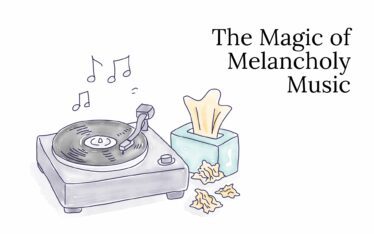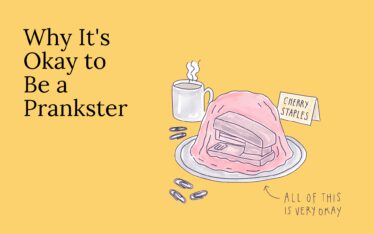If you were dying, would you want to know it?
According to research, you might not have a choice: for half the people who die each year, the medical community is able to solemnly deliver the “I’m sorry but you’re dying” news to the sick patient before they kick the bucket.
For the other half of people who die, the medical community isn’t able to sniff the Grim Reaper out in advance (he’s a slippery son of a bitch, after all), and so these people pass away without the benefit of knowing they’re a stone’s throw away from death.
Medical experts say that “many individuals are going to arrive at death’s door without ever having a thoroughly dismal prognosis.” Health professionals also note that many patients who suffer from chronic illnesses “never experience a time during which they are clearly dying of their disease.”
And here we have it: we’re talking about Ambiguous Dying Syndrome — that murky period more than half of us will experience before death, when we aren’t actually aware we are dying.
Death can be dubious.
Predicting the timing of death has been called an uncertain art, and understandably there are medical, social, and spiritual implications associated with this ambiguous period of time. Not seeing the writing on the wall (i.e.: the clarion call of death), according to experts, means “these people may miss out on the opportunity to close important relationships and make financial and legal arrangements that can benefit themselves and their survivors. They may inadvertently forgo palliative care that is available to comfort them physically, emotionally, and spiritually.”
All of that sounds problematic, and while it’s clear the conceptualization of “dying” might need to change within the medial field to help remedy this ambiguity pickle, it’s not really what we’re going to talk about today.
No, we’re going to talk about how you and I have a minor yet insidious version of Ambiguous Dying Syndrome going on in our own lives.
You and your Ambiguous Dying Syndrome
The presumptive trouble behind Ambiguous Dying Syndrome is the not knowing you’re going to die part — that it feels like a tragedy to not know when death is near, that it leads to a cacophony of missed opportunities you could have acted upon had you only known death was around the corner.
But we all know we’re dying, right?
Some experts attest that dying begins the moment we’re born, and those are the kinds of experts I’d like to sit beside at dinner. Being diagnosed with a fatal condition certainly ups the ante on the “end is near” scale, but what about the rest of us who haven’t had a brush with death to foreshadow the end?
Professor Mercedes Bern-Klug highlights what I believe is a profound personal conversation with Joanne Lynn, M.D.: “If you are waiting for a drum roll to announce you are dying, it isn’t going to happen in most cases. Even if you are seriously ill, often you could live a long time, or you could be gone tomorrow. Don’t expect much of a warning. If you have important things to do, do them. If you still have time left over, you may get to do them twice.”
Yes, yes, and more yes!
This is why I’m all jacked up about this Syndrome: WE ARE ALL LIVING IN AMBIGUITY EVERY DAY WE’RE LUCKY TO BE ABOVE GROUND. I could bite the biscuit tonight. You could choke on your Cheerios tomorrow morning and be buried by the end of the week (please don’t do that though).
What if we all lived with an amped-up awareness of the end, to live with a little more urgency?
What if we worked on our close relationships now, so we didn’t have to scurry around to mend them near the end?
What if we made our “administrative arrangements” now (borrrrrrrring, I know, sorry) so we didn’t have to scamper around near the end, figuring out who gets the grandfather clock, whether you want to be resuscitated, and where your cremains should be scattered?
What if we made peace with our God/ higher power/ whatever “outside of ourself” thing we feel connected to now, so we don’t clamor for spiritual transcendence at the eleventh hour?
What if we truly lived now, so we didn’t have to sulk near the end — feeling ripped off, like we didn’t have enough time to get to the Croatian coast, to go hang gliding, to try ayahuasca, to visit that college pal in British Columbia, to take that online course, to go on a silent retreat, to finally admit our deepest secrets to a loved one, to make a baked Alaska (okay someone needs to stop me here because I will go on until we both die), etc.
Guys, we can see the writing on the wall. There’s no debate about whether we’re going to die — it’s just the timing that’s ambiguous. Rather than feeling fraught about our inevitable, mysterious demise, let’s use that murkiness to our advantage. Let’s live like we’re dying (I think Tim McGraw sang that?). We can die with ambiguity, but let’s not live with ambiguity. I’m feeling compelled to satisfy my baked Alaska craving now, and I’m rightfully chalking that up to truly living before I die.







